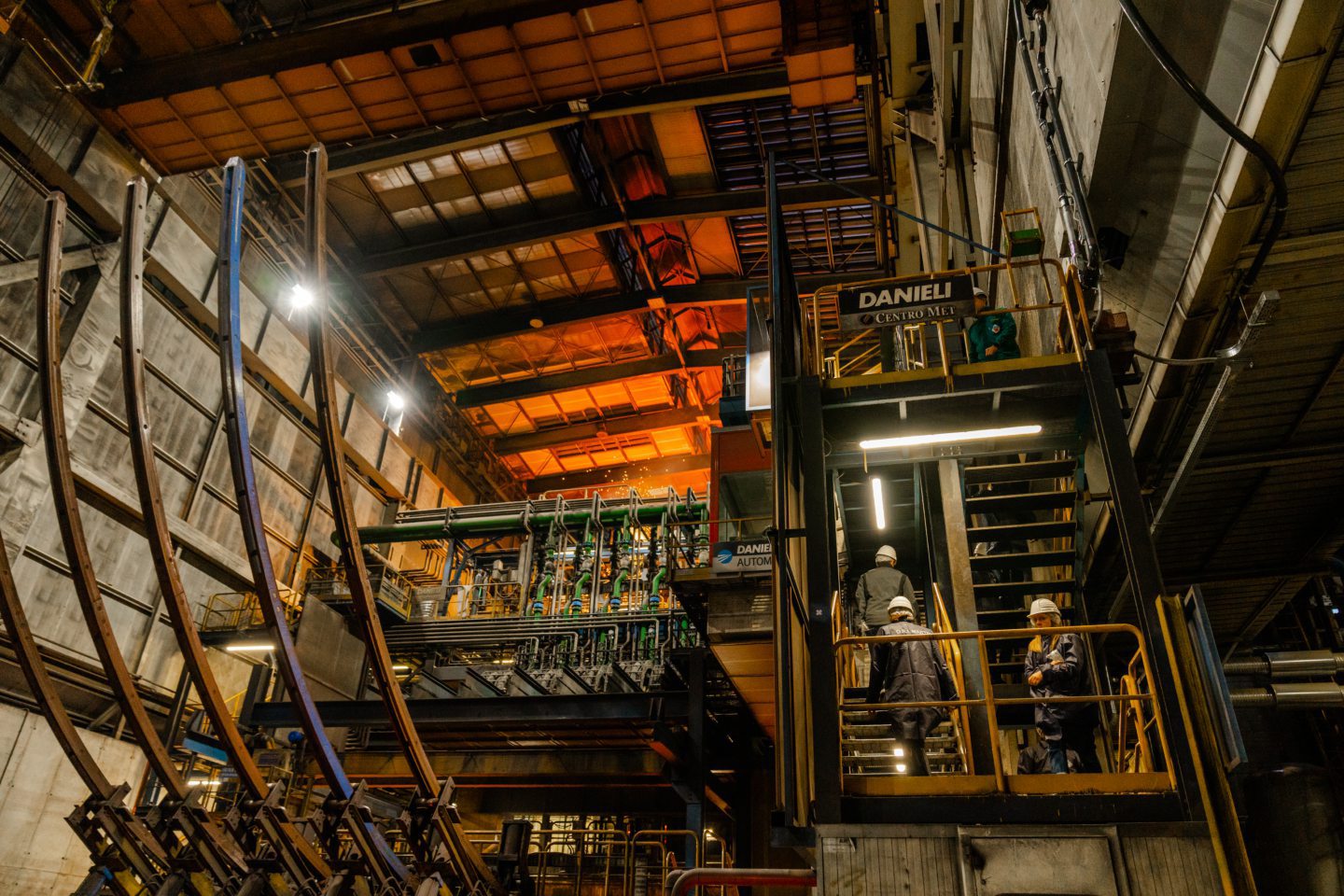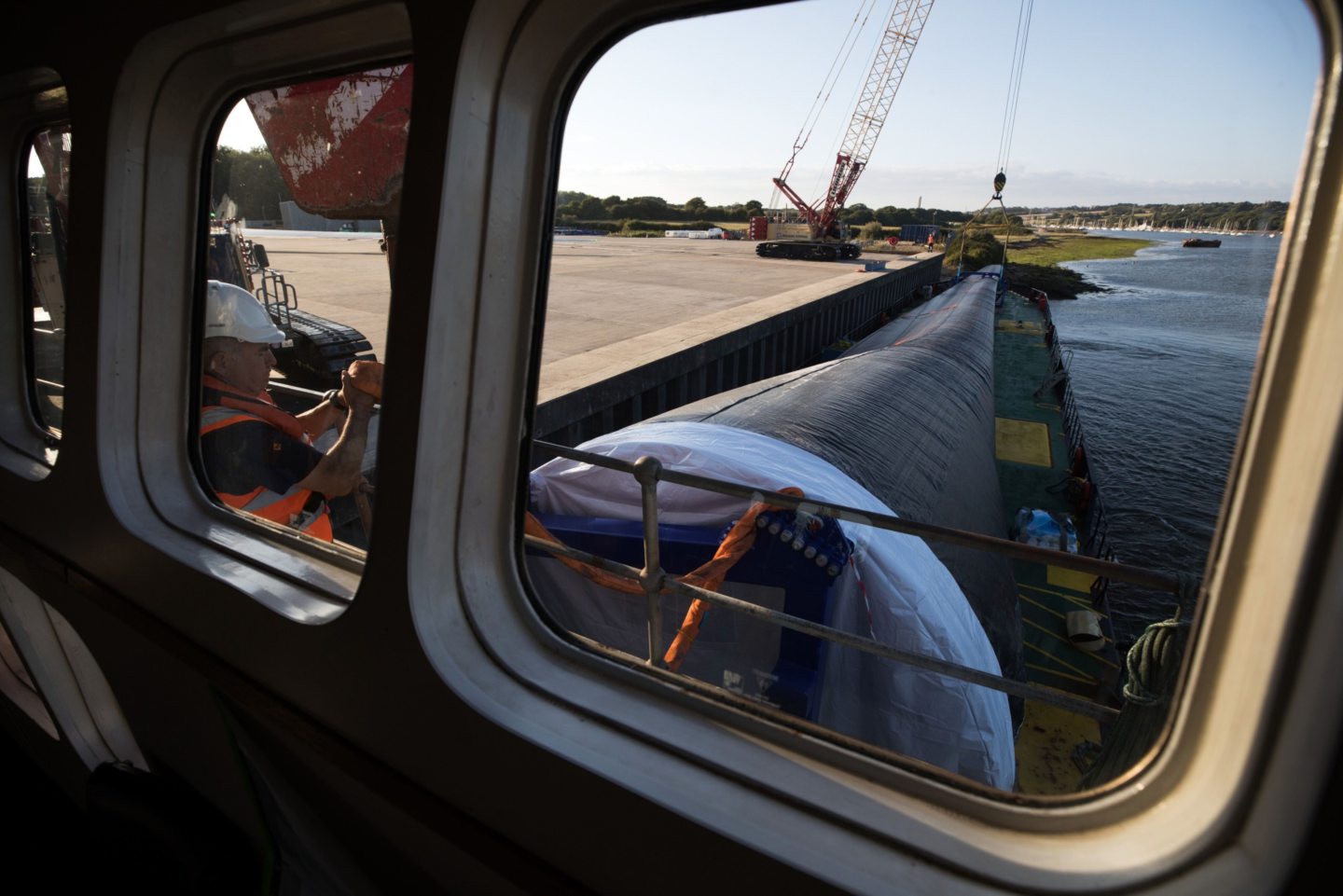Over the past few years, the UK manufacturing sector has faced unprecedented challenges.
According to Make UK, the sector’s principal trade body, 60% of manufacturing businesses were on the brink of closure over late 2022 and early 2023.
The defining factor behind this was soaring energy costs, which reached levels unseen this century and remained elevated for several months afterwards.
While these costs have since gone down, they are still significantly higher than averages taken across the previous decade, leaving businesses exposed to further instability.
The full impact of this pricing volatility is still unfolding and without proactive measures businesses will remain vulnerable to future instability.
For example, energy market analyst firm Cornwall Insight forecasts continued volatility in the wholesale energy market until at least 2030 unless substantial changes are made to long-term energy strategies.
Though this is largely outside the control of UK manufacturers, this situation has placed enhancing energy resilience at the forefront of business priorities.
The ongoing energy disconnect
This realignment can be seen in the latest market report commissioned by Mitsubishi Electric, Energy on an Industrial Scale.
Surveying 200 senior decisionmakers working in UK manufacturing, it found 91% of respondents expressed concern over energy price security and 85% were worried about grid resilience.
Yet while this paints a picture of heightened industry awareness over issues of volatile energy supply and pricing, the research also unearthed a ‘disconnect’ between identifying and addressing the problem.
Namely, while respondents could easily articulate their concerns, only 24% of those questioned had a fully implemented on-site energy management system, and just 27% employed a dedicated energy manager.
The contrast in these findings demonstrate that industry has not yet taken crucial steps to enhance energy resilience and mitigate further fluctuations.
But with power costs returning to something approaching ‘normal’, the sector is in an ideal place to reconsider current energy strategies and address potential uncertainty. The question, therefore, is how this can be done.
Overcoming digitalisation barriers
One of the key strategies for improving on-site energy resilience is through digitalisation.
By leveraging digital tools, site teams and senior managers can gain access to detailed and meaningful data.
Properly interpreted, this information is crucial for making competitive decisions, allowing businesses to monitor and manage their energy consumption for individual assets and across sites.
Such insights enable manufacturers to optimise energy use, reduce waste and emissions, and better mitigate pricing volatility fluctuations.
Additionally, integrating smarter technologies can give businesses the agility and interactivity required to align with the UK’s evolving energy infrastructure, further improving energy security.
Though the benefits of digitalisation are clear, our research shows a limited level of adoption within the manufacturing sector.
Specifically, 45% of report respondents said their existing systems measured energy consumption but not in any great detail, and 18% said they did not pay any attention to it at all.
This represents a significant missed opportunity, and attention must be paid to how digitalisation barriers can be overcome.
Scale and approach are critical considerations. Effective digitalisation requires a scalable, ongoing strategy tailored to the specific needs of manufacturers and their facilities.
It must also be noted that digital transformation is not a one-time effort, and instead requires continuous engagement and investment in solutions that can grow alongside business operations while adapting to evolving technologies and market conditions.
Energy efficiency and emissions reduction
Improving energy efficiency is another invaluable way of enhancing business resilience, allowing organisations to reduce fuel consumption and emissions in line with regulatory requirements and customer expectations.
As PwC points out: “Despite today’s challenging environment and cost-constrained market, growing customer pressure to decarbonise means that industrial businesses, including manufacturing companies, can no longer afford to delay action”.
Upgrading outdated equipment and optimising existing processes is central to this.
By implementing more energy-efficient solutions and procedures on the factory floor, organisations can reduce energy consumption while reducing overall waste.
This may help offset grid resilience concerns that can also be assuaged with the adoption of renewable, small-scale decentralised energy resources.
To the sector’s credit, it has made good progress here – just under half of respondents (46%) in Mitsubishi’s latest report said they had installed renewable generation technologies such as wind or solar on their sites.
However, a sizeable 12% of those surveyed said they had no onsite decentralised energy capabilities, leaving them exposed to more volatile energy supplies and fossil fuel pricing.
This is undoubtedly a cause of concern.
Staying on track to net zero manufacturing
It also points to a wider challenge in UK manufacturing – achieving net zero.
Despite renewables now accounting for a significant percentage of the UK’s energy mix, the sector remains energy-intensive, equating to higher overall emissions.
Though reducing carbon footprints is often seen as a barrier to growth, Mitsubishi’s research demonstrates this is not the case.
Indeed, 85% of respondents said working towards net zero was a key part of their business and 70% stated they had been asked to report on scope 1/2/3 emissions for a tender process.
However, a similar disconnect can be felt here, as despite identifying the overarching issue only 35% of those surveyed said they were currently implementing net zero into their operations.
This further affirms the need for manufacturers to take small but necessary steps with a goal-oriented energy strategy that can deliver a tangible ROI.
Basing this approach on tools and technologies that accelerate digitalisation, decarbonisation and process efficiency can enhance energy resilience and further affirm that net zero and energy security are not mutually exclusive.
The path to greater energy resilience
In conclusion, the UK manufacturing sector faces a complex and evolving energy landscape.
While wholesale energy prices are beyond individual control, manufacturers can implement strategies to enhance resilience, proactive steps can still be taken to safeguard operations.
By prioritising digitalisation and energy efficiency, manufacturers can best shield themselves against future energy shocks while meeting environmental goals and customer expectations.
Though it may be challenging, adopting the right approach will help the sector navigate volatility and emerge stronger and more competitive.
David Bean is the business development group manager at Mitsubishi Electric Automation Systems UK
Recommended for you




 © Supplied by Mitsubishi Electric
© Supplied by Mitsubishi Electric © Image: ORI Martin
© Image: ORI Martin © Photographer: Chris Ratcliffe/Bl
© Photographer: Chris Ratcliffe/Bl






